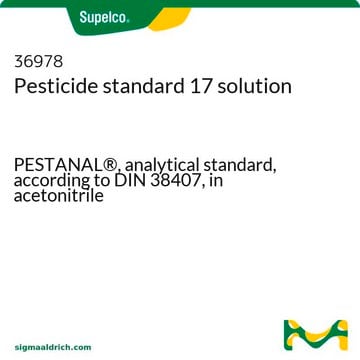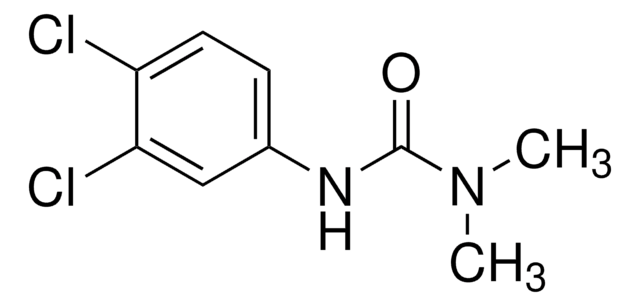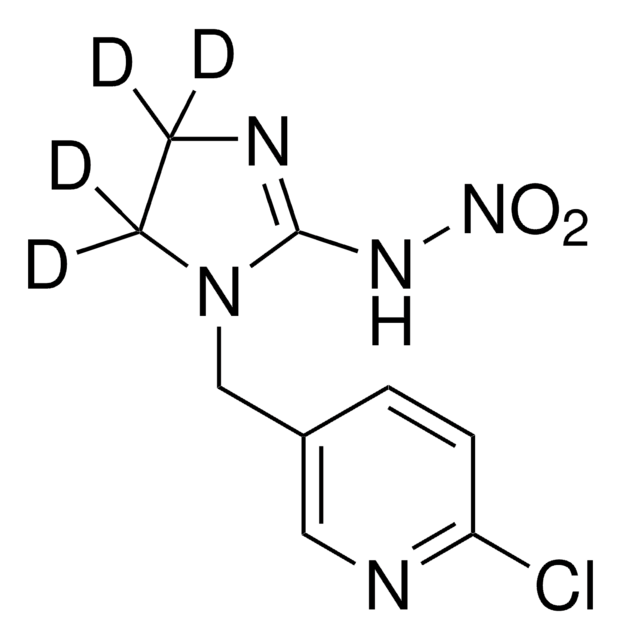34017
Isoproturon-d6
PESTANAL®, analytical standard
Synonym(s):
3-(4-Isopropylphenyl)-1,1-dimethylurea-d6
About This Item
Recommended Products
grade
analytical standard
Quality Level
product line
PESTANAL®
shelf life
limited shelf life, expiry date on the label
technique(s)
HPLC: suitable
gas chromatography (GC): suitable
application(s)
agriculture
environmental
format
neat
mass shift
M+6
SMILES string
[2H]C([2H])([2H])N(C(=O)Nc1ccc(cc1)C(C)C)C([2H])([2H])[2H]
InChI
1S/C12H18N2O/c1-9(2)10-5-7-11(8-6-10)13-12(15)14(3)4/h5-9H,1-4H3,(H,13,15)/i3D3,4D3
InChI key
PUIYMUZLKQOUOZ-LIJFRPJRSA-N
General description
Application
- Soil samples using pressurized liquid extraction (PLE) followed by liquid chromatography coupled to mass chromatography (LC-MS) and electrospray ionization-tandem mass spectrometry (LC-ESI+-MS/MS).
- Surface water samples using online solid phase extraction–liquid chromatography–tandem mass spectrometry (SPE–LC–MS/MS).
Legal Information
related product
Signal Word
Warning
Hazard Statements
Precautionary Statements
Hazard Classifications
Aquatic Acute 1 - Aquatic Chronic 1 - Carc. 2 - STOT RE 2
Target Organs
Blood
Storage Class Code
11 - Combustible Solids
WGK
WGK 3
Flash Point(F)
Not applicable
Flash Point(C)
Not applicable
Personal Protective Equipment
Choose from one of the most recent versions:
Already Own This Product?
Find documentation for the products that you have recently purchased in the Document Library.
Our team of scientists has experience in all areas of research including Life Science, Material Science, Chemical Synthesis, Chromatography, Analytical and many others.
Contact Technical Service









